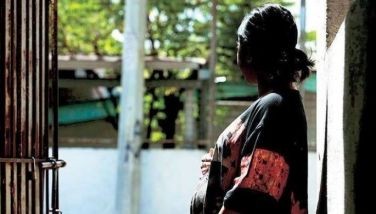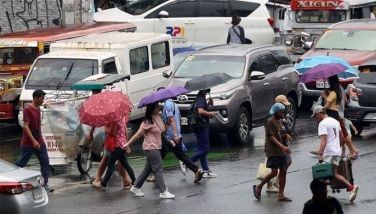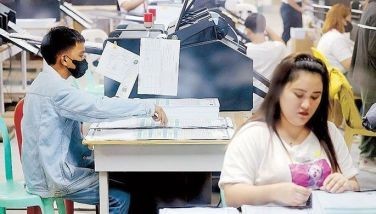RP seeks removal from UN list of countries with child soldiers
MANILA, Philippines – The Philippines has called on the United Nations to remove it from the list of countries monitored by the Security Council for having children involved in armed conflict.
Ambassador Hilario Davide Jr., Philippine Permanent Representative to the United Nations, called for the de-listing during a recent meeting in New York of the UN Security Council Working Group on Children and Armed Conflict.
In his statement, Davide said the UN should reconsider the inclusion of the Philippines in the list because of the government’s extreme sensitivity to the needs not only of Filipino children but also of children the world over, particularly those trapped in armed conflict.
“In view of my country’s legal firewall for the protection of children, the relative calm in the country and the cultural values placing children as the centerpiece of a family’s attention, the Philippines should be dropped from Annex 2 so that the Working Group could train its eyes on other countries facing worse circumstances in regard to children and armed conflict,” Davide said.
“The Philippines condemns non-state actors in the country who recruit, abduct, and use children, yet deny their illegal and unjustifiable deeds,” he added.
The Philippines was listed in Annex 2 shortly after the Security Council adopted Resolution 1612 in 2005, because of the actions and activities of the communist New People’s Army (NPA), the Moro Islamic Liberation Front (MILF) and the Abu Sayyaf Group.
Davide cited the immense legal structure in the Philippines designed to protect children, particularly the Philippine Constitution and other legislation that aims to protect the nation’s most valuable resource. He also mentioned the activities of various government agencies including the Department of Social Welfare and Development, which reintegrates and rehabilitates children involved in conflicts.
Davide said the laws, the system, the culture and the people are in place, so that “it is a matter (of) coming together and working with and among ourselves and the international community so that we can ensure that the children are not affected by armed conflict and those that are, are given the proper treatment that they require.”
During the same meeting, the Special Representative of the Secretary General for Children and Armed Conflict, Radhika Coomaraswamy, cited the constructive approach of the Philippine government in addressing the issue, particularly in agreeing to the launching of the monitoring and reporting mechanism and in welcoming her visit to Manila later this year.
“Let me also add that there is a substantial national capacity in the Philippines to deal with issues relating to children and we want to particularly commend the Commission on Human Rights for addressing questions related to children and armed conflict,” she said.
Coomaraswamy also commended the Philippine government, which is a signatory to all core child protection instruments, for creating an exemplary framework of laws and policies that should provide for the protection of children in conflict.
Responding to Davide’s statement, Coomaraswamy explained that the inclusion of the Philippines in Annex 2 countries is not intended to embarrass Manila but just to point out that there exists a situation where children are involved in armed conflict in the country and that non-state actors are the culpable parties.
In her statement, Coomaraswamy agreed with Davide that “recruitment and use of children as soldiers by the Moro Islamic Liberation Front, the Abu Sayyaf Group and the New People’s Army continued from 2005 to 2007.”
Citing a study by the United Nations Children’s Fund (UNICEF), Coomaraswamy said “many children fighting with the MILF are orphans who are trained militarily, expected to do auxiliary assignments and defend the community when it comes under attack.”
On the NPA, she said the UNICEF study “points to a large number of children at risk being used as porters, cooks, and message carriers. Thirty-one children who were combatants with the NPA were taken in by the Armed Forces of the Philippines and a large percentage were girls.”
“The international community should support, as a priority, national processes and national institutions in the Philippines to deliver the promises contained in the provisions of their law,” Coomaraswamy said. “The Philippines has the national capacity to deal with these issues and therefore their efforts should be supported and enhanced by their international partners.”
- Latest
- Trending































